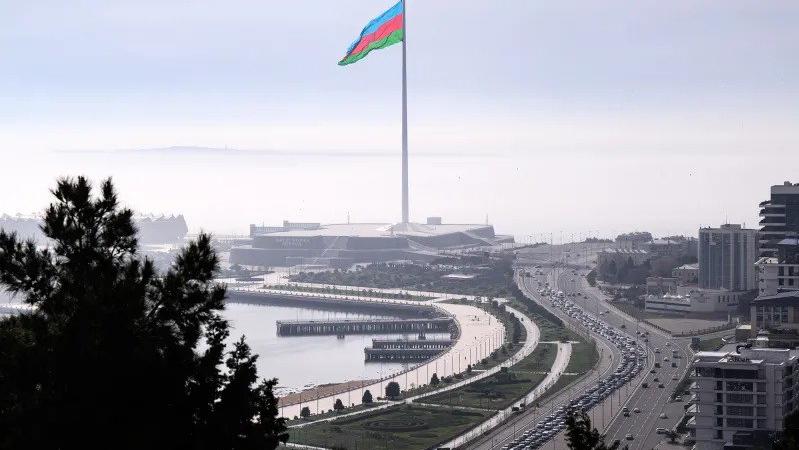
The window for peace with Armenia may close: Azerbaijan threatens the new regional order, says Foreign Affairs
Amid this remarkable recent good fortune, Azerbaijan faces an important choice. After 36 months of negotiations, it now has a rare opportunity to reach a more lasting peace with Armenia. In mid-March, officials in Baku and in Yerevan, the Armenian capital, announced they had finalized the text of a long-awaited peace agreement. If formalized, the treaty would put a definitive end to the once intractable conflict, cementing a new order in the South Caucasus, Foreign Affairs writes.
Yet it is unclear whether Azerbaijan will embrace the opportunity. Seeing itself in a position of strength, it has demanded further concessions from Armenia and appears to be in no hurry to conclude the deal. Meanwhile, although its oil- and gas-centered economy has brought much prosperity in recent years, these gains are fragile, and there has been little effort to diversify. Even a modest dip in energy prices—as has already begun to occur in 2025—could destabilize state finances and expose deeper vulnerabilities, including rising social inequality and public disaffection. In power for more than 20 years, Azerbaijan’s leader, Ilham Aliyev, has continued to tighten his political control and clamp down on dissent, relying on the country’s economic growth and a narrative of national strength to keep the population content.
These weaknesses, coupled with geopolitical uncertainty across the region, make Azerbaijan’s rise precarious. If the war in Ukraine begins to wind down, Russia might refocus on a region where it can still exert control—including over its former longtime ally, Armenia.
“Even short of that, Moscow could be a potent spoiler, especially if no peace agreement is signed and transport links between Armenia and Azerbaijan remain blocked. In such a scenario, the Kremlin could reimpose itself as the key guarantor of regional connectivity—on its own terms. And without a peace agreement, Azerbaijan could find itself economically exposed, politically overextended, and at risk of strategic stagnation. Lacking the broader dividends of peace, including foreign investment and regional economic integration, Azerbaijan might also lose the chance to build a more sustainable political order at home. As a result, the South Caucasus could remain trapped in rivalry, forfeiting what may be the region’s best opportunity yet for meaningful cooperation among its three states,” the website writes.
Starting in early 2022, these moves steadily undermined Russia’s security guarantees, sending a clear message to the Armenian government and to Nagorno-Karabakh’s ethnic Armenian population that the peacekeepers would no longer intervene to protect them. That message was confirmed in September 2023, when Azerbaijan launched a large-scale military operation that within a few hours captured all of Nagorno-Karabakh—without Russian resistance.
Meanwhile, the Aliyev government had been leveraging geopolitical shifts to gain greater regional clout. Cut off from the West by sanctions, Moscow had begun relying on alternative trade routes—particularly the so-called North-South Transport Corridor, which runs from Moscow through Azerbaijan and Iran to Persian Gulf ports. Although the infrastructure on this route is still being developed, it has become a vital path for an isolated Russia and has strengthened Azerbaijan’s hand against the Kremlin. With Russia weakened, Azerbaijan has also deepened its strategic ties with Turkey. Moscow now understood that confronting Baku risked straining its complex and strategically important relationship with Turkey.
For Azerbaijan, however, peace with Armenia was only one of several opportunities opened up by the war in Ukraine. As Europe scrambled to reduce its dependence on Russian energy, Baku emerged as a partial alternative. Although Azerbaijani gas supplies could not rival the scale of Russian exports, they offered enough to buttress European energy security—particularly for southern European countries with more modest needs.
Yet the profits were more modest than some in Baku may have anticipated. Despite higher global energy prices, gas exports brought in around $12 billion over those four years—less than Azerbaijan earned from oil in a single year, as surging prices delivered a much larger windfall. The outlook has been further clouded by Europe’s reluctance to expand its energy delivery infrastructure to receive more Azerbaijani gas exports—a step that some member states see as conflicting with the bloc’s ambitious climate goals.
Yet this new geopolitical clout has not insulated Azerbaijan from regional tensions, especially with neighboring Iran. The relationship worsened sharply after the 2020 war, which restored Azerbaijani control over a large stretch of its border with Iran and which tightened Baku’s ties to Tehran’s rivals, Turkey and Israel. An armed attack on Azerbaijan’s embassy in Tehran in early 2023—widely viewed in Baku as tolerated, if not orchestrated, by Iranian authorities—marked a low point in Azerbaijani-Iranian relations.
Although tensions have since eased, Iran is losing its long-standing leverage over Baku, including its historical relationship with Nakhijevan, the Azerbaijani exclave on Iran’s border. In March 2025, Turkey and Azerbaijan inaugurated a new gas pipeline connecting Nakhijevan to Turkey’s gas grid, and thus reduced Nakhijevan’s decades-old reliance on Iranian energy. If a peace agreement between Azerbaijan and Armenia also unlocks a direct land corridor from Azerbaijan to the exclave through southern Armenia, Iran would lose yet another point of leverage. Such a shift would diminish Iran’s role not just in energy transit but also in regional trade, where it has long served as a conduit for Turkish goods headed to Central Asia. And it would further boost Turkey’s regional influence.
Iran also harbors deeper concerns about Azerbaijan: that in a future conflict over its nuclear program, Baku could serve as a springboard for Israeli military action.
Azerbaijani officials seem to assume that their country’s diplomatic proximity to Israel, and geographic proximity to Iran, will make Baku indispensable to long-term U.S. interests—regardless of who sits in the White House. If tensions grow between Iran, Israel, and the United States, Tehran could lash out at Azerbaijan militarily or by using its influence with Shiite clerics to foment internal unrest—particularly if Baku appears to be supporting Israel.
Meanwhile, Azerbaijan has stalled on a historic chance for lasting regional peace. In postponing the deal with Armenia, Baku has made two core demands: changes to the Armenian constitution to remove perceived territorial claims, and the granting of an uninterrupted land corridor connecting mainland Azerbaijan to the Nakhijevan exclave.
Turkey’s role will also be critical. Ankara sees the South Caucasus as part of its strategic hinterland. A stronger regional role for Turkey will also help Azerbaijan, which ultimately relies on Turkey to counterbalance any renewed Russian pressure. The question is not whether a peace treaty is desirable but whether it can be secured before the window that has made it possible closes. The longer a settlement is delayed, the more vulnerable the process will become to shifting political currents and external interference. Armenia’s domestic fragility, waning global attention, and renewed Russian interest could derail the positive steps made over the past three years.



